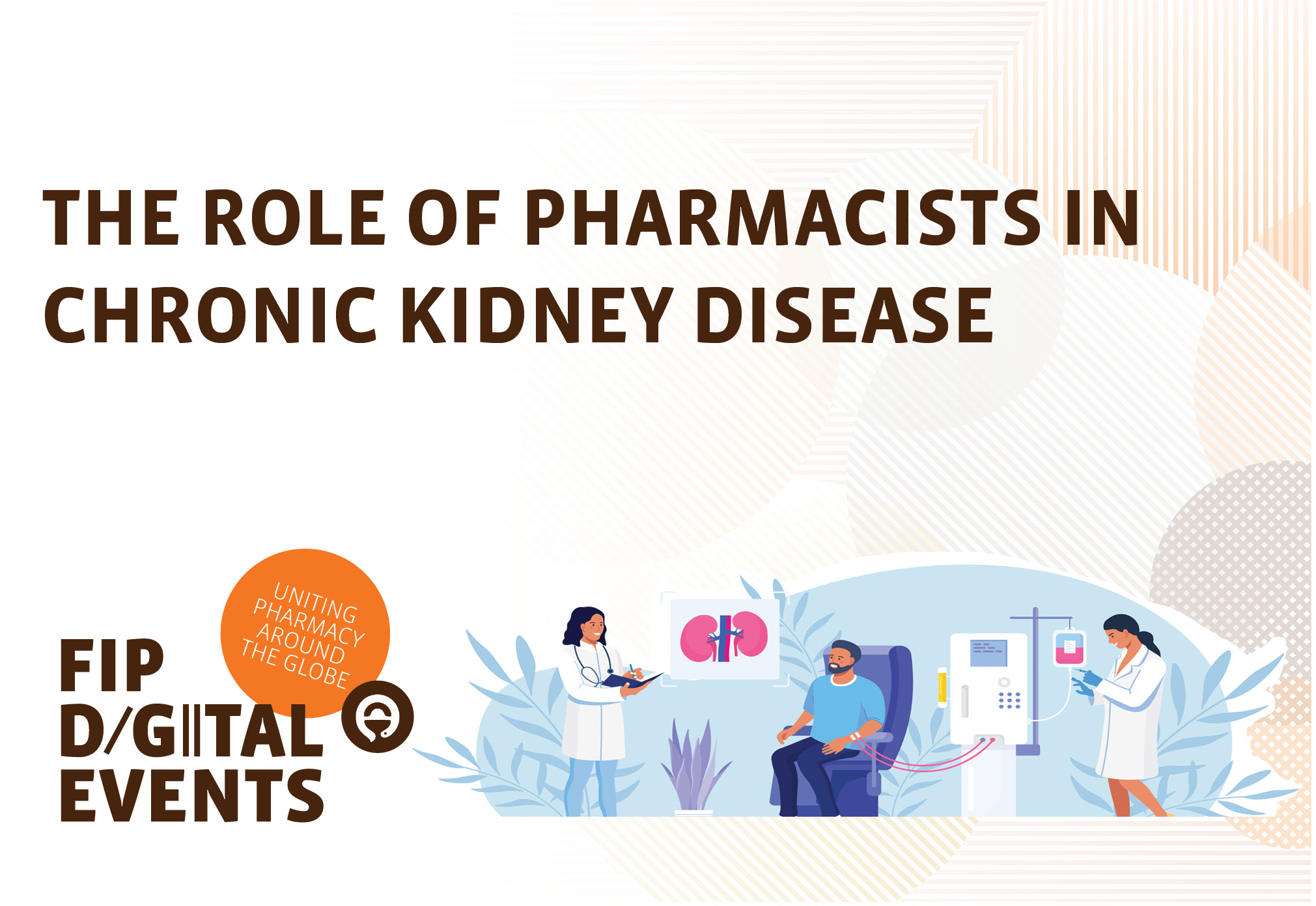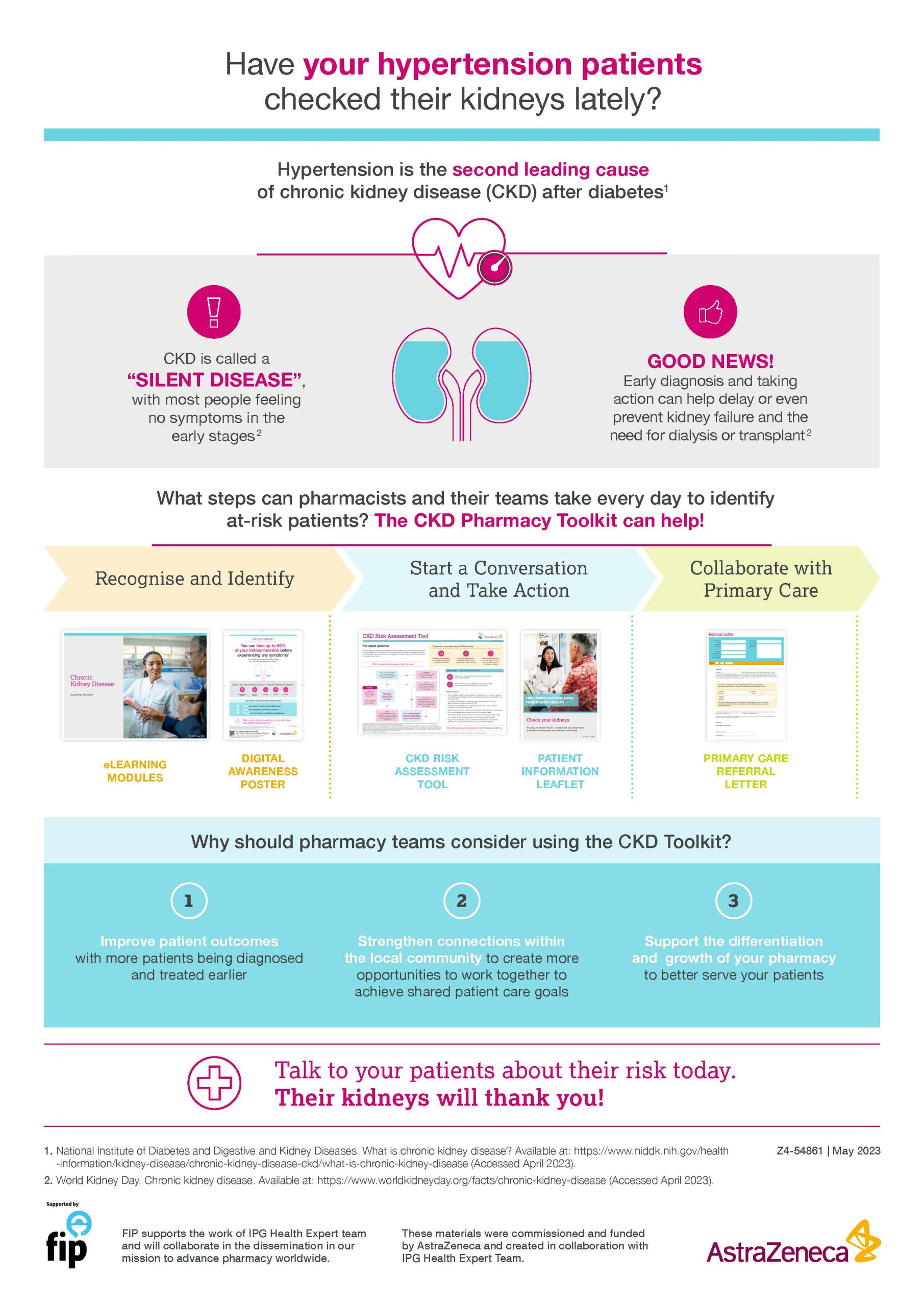
Infographic
The infographic is a one-page digital visual aid that serves as a quick reference guide on where, when and why to use the CKD Pharmacy Toolkit in pharmacy practice (with quick links to the toolkit’s practice resources). The infographic is to be used on social media and in print to support the launch of the CKD Pharmacy Toolkit.

CKD Pharmacy Toolkit Guide
The CKD Pharmacy Toolkit Guide serves as a reference for pharmacists and pharmacy team members (where appropriate) using the toolkit. The purpose of the Toolkit Guide is to identify and describe each practice resource included in the Toolkit. The contents will provide support during the implementation of this programme which has been carefully designed for pharmacists by pharmacists.

eLearning Modules
The eLearning modules (Understanding Chronic Kidney Disease and Identifying patients at risk of CKD) provide foundational knowledge about CKD for pharmacists and pharmacy team members (where appropriate) to support at-risk patient identification and counselling. Both modules can be completed by all pharmacy staff.
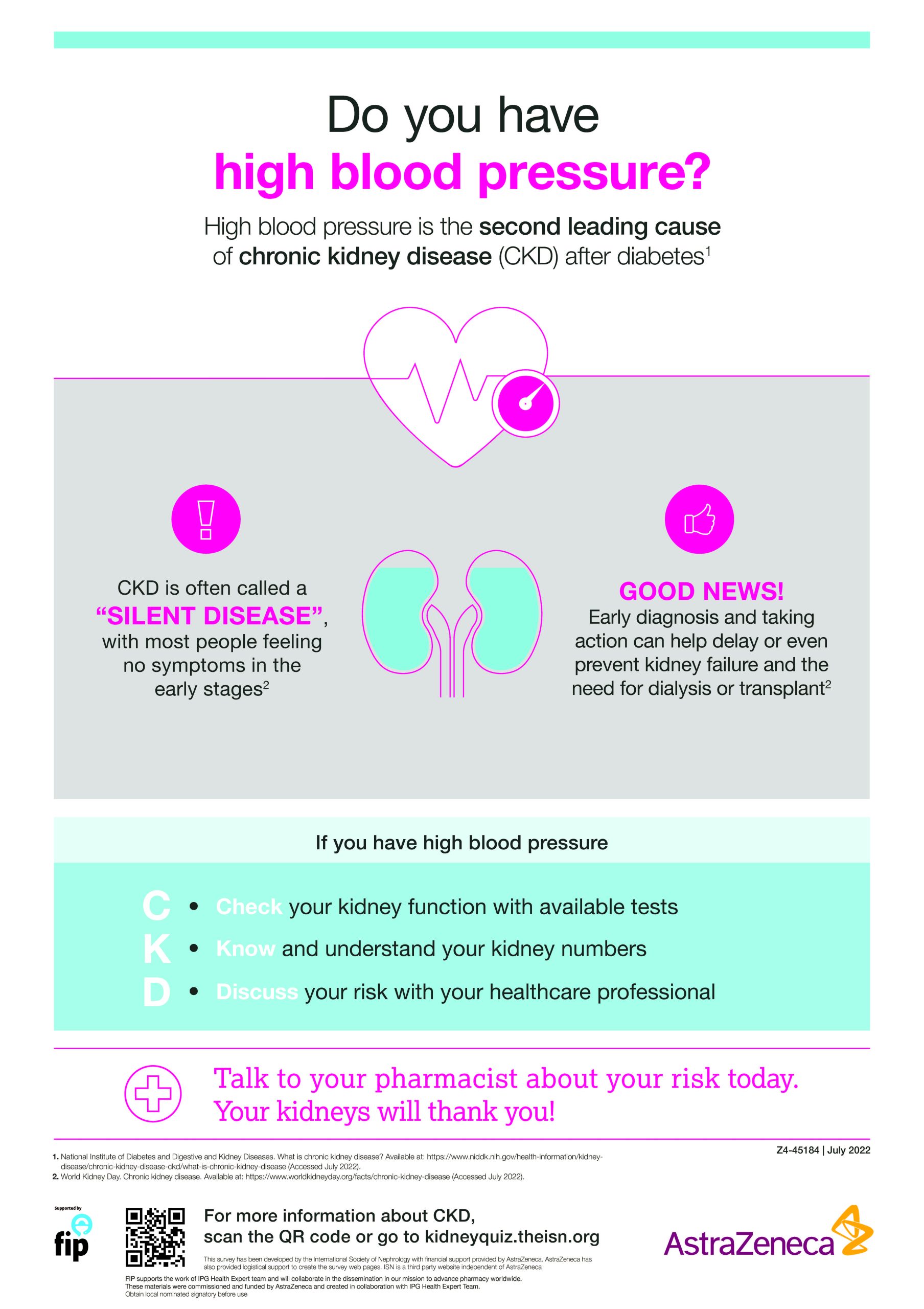
Disease Awareness Posters
The disease awareness posters include key, high-level information about what CKD is, how it can be symptomless and that simple tests exist to screen for it. They are aimed at anyone who visits the pharmacy, to prompt them to initiate a conversation with a pharmacist about their CKD risk.
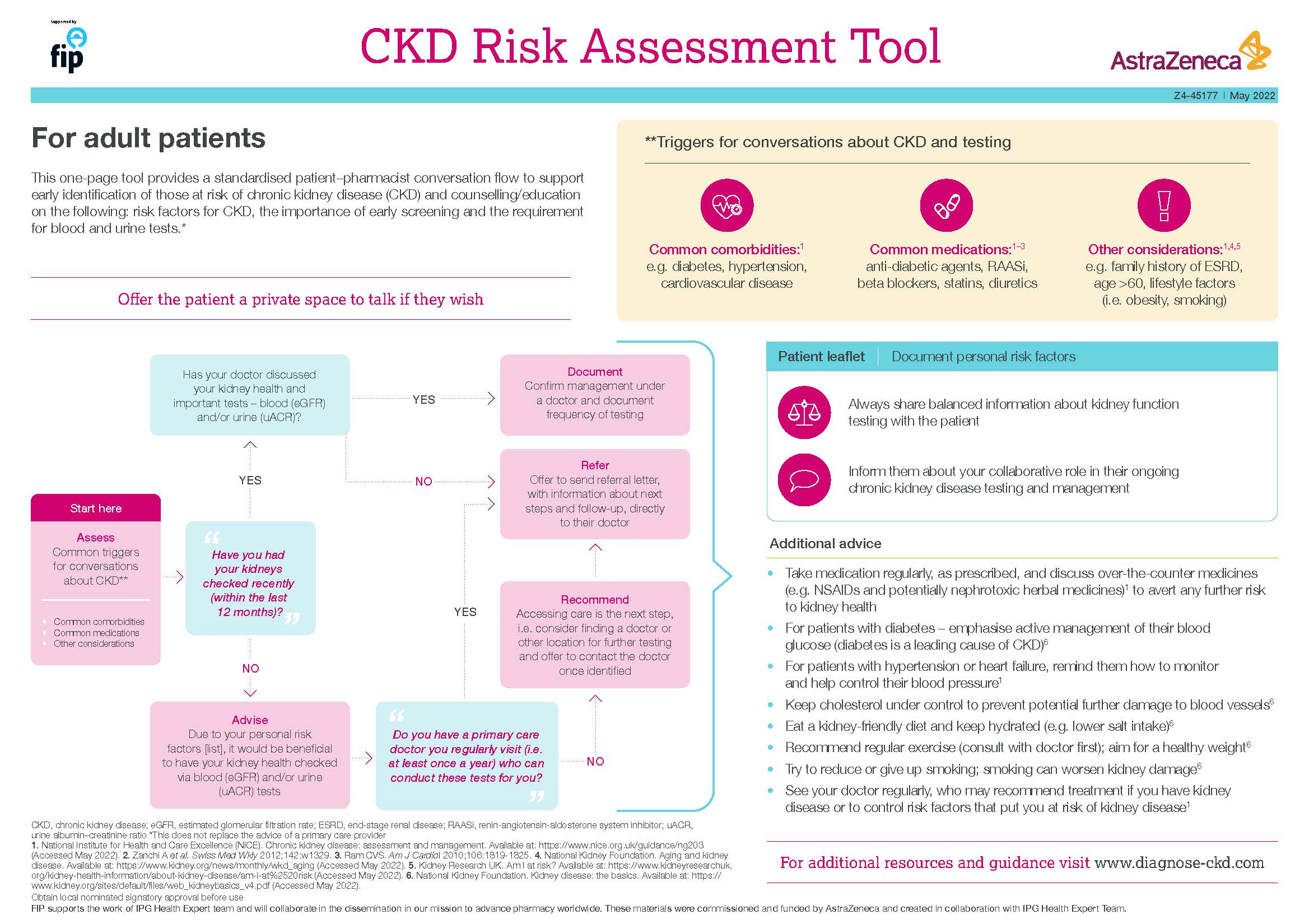
CKD Risk Assessment Tool
The CKD Risk Assessment Tool has been developed to be used by pharmacists to support counselling patients on the risk of CKD, the condition itself and how they can be screened for it. It is set out as a flow diagram of a standardised conversation with a patient, including question prompts and education reminders as well as an abridged list of risk factors which can be used as a criterion for CKD screening.
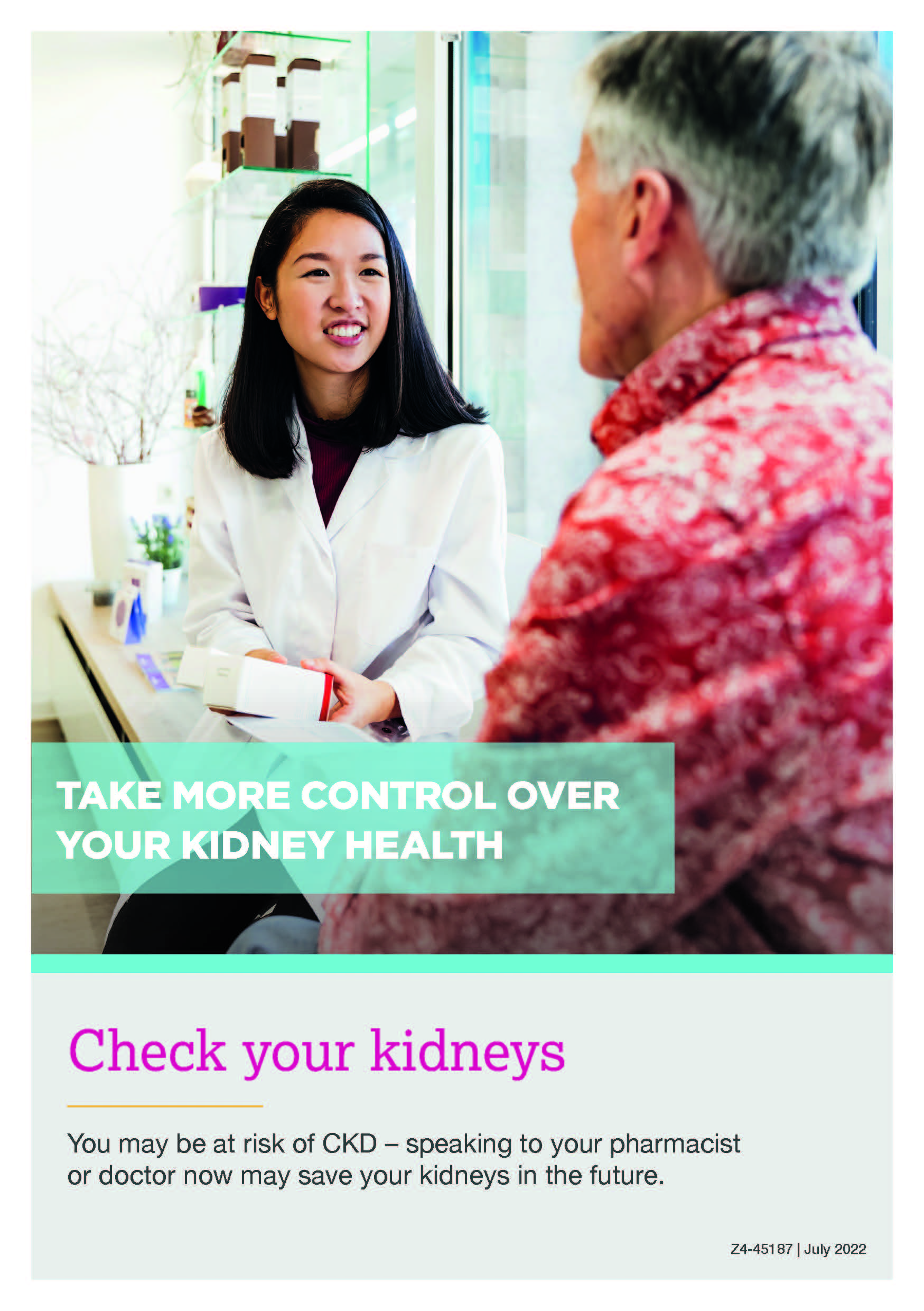
Patient Information Leaflet
The Patient Information Leaflet is to be used to summarise the interaction with the patient and to provide supplemental information. The handout has been developed to be shared by a pharmacist with patients at risk of CKD to serve as a prompt to encourage the patient to get screened for CKD and to take the ISN “Are your kidneys healthy?” self-assessment quiz.
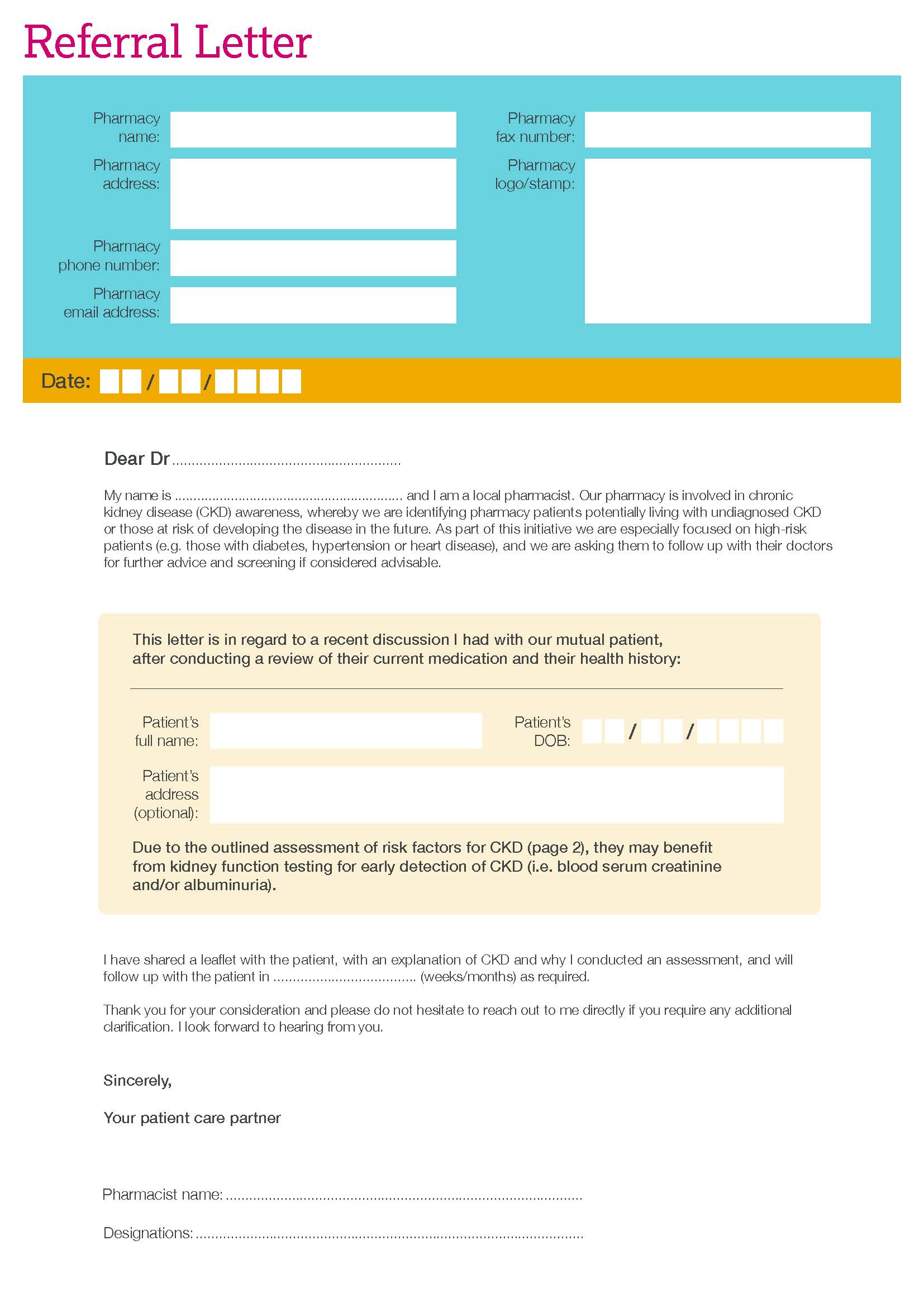
Primary Care Referral Letter
The Primary Care Referral Letter provides a summary of why the patient has been identified as at risk of CKD and why they may benefit from kidney function testing for early detection. The referral letter is to be sent by pharmacists to the primary care physician of the patient at risk of CKD.


